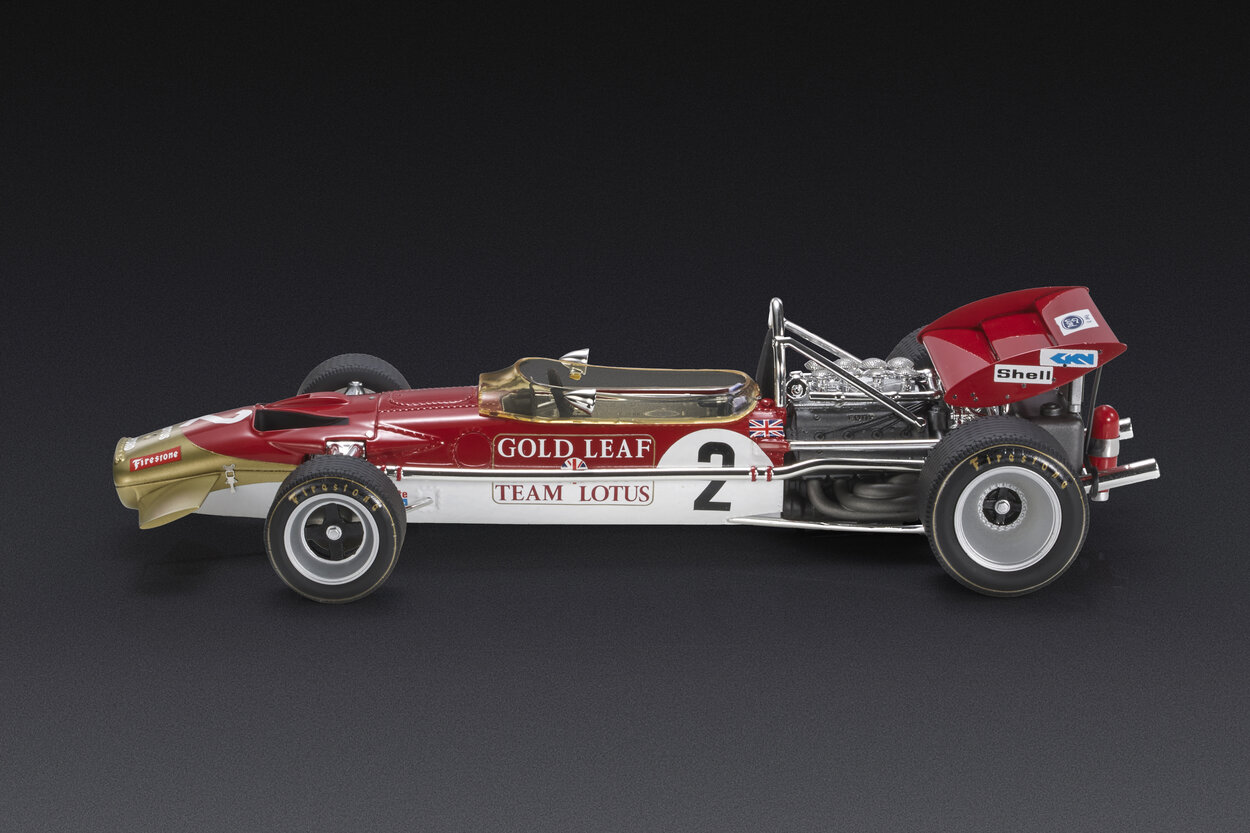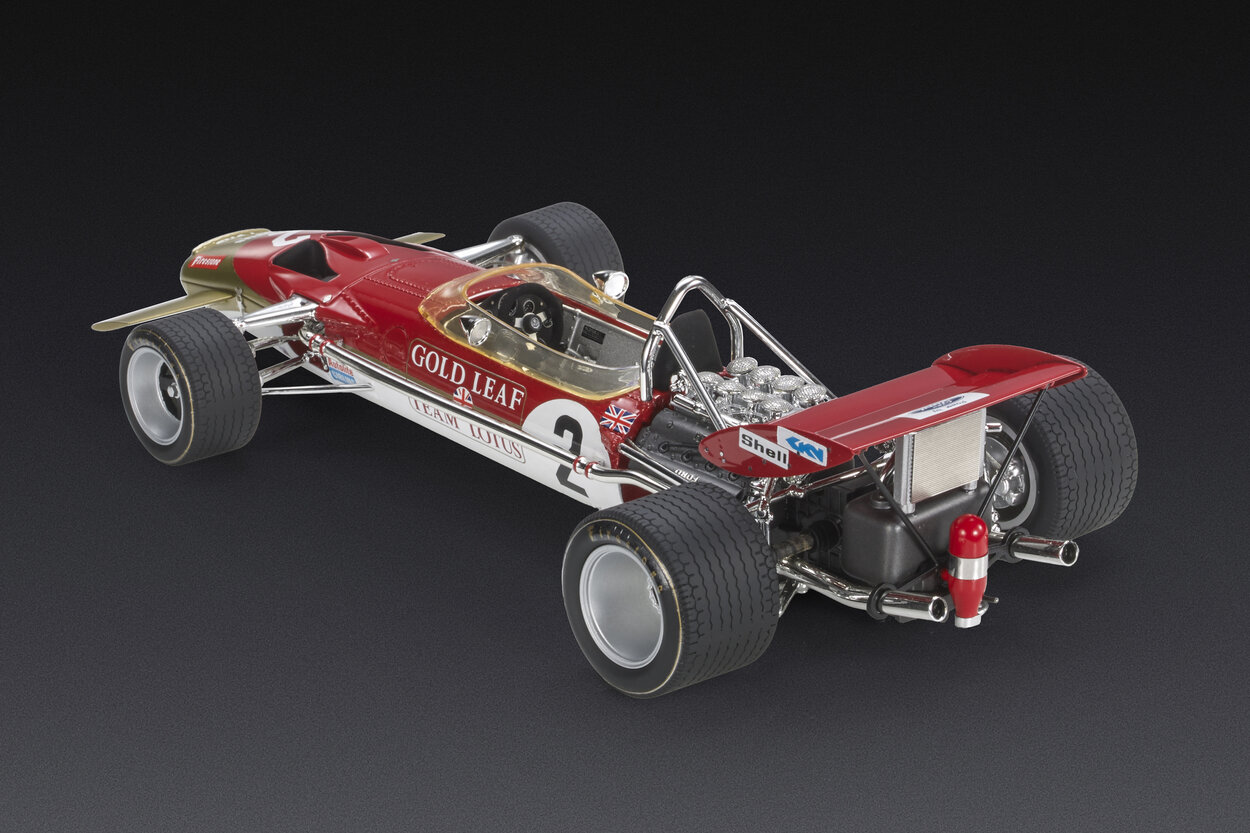Lotus 49C
In 1970, the Lotus 49 is in its final season. Colin Chapman had wanted to replace it already in 1969 with the model 63, which however proved to be below expectations in terms of competitiveness. So the old 49 model, in its B version, continued to compete. For the 1970 season, Chapman focuses on the model 72, but its development takes longer than expected, and above all, after the first race of the season, it does not fully convince Jochen Rindt, who that year is Lotus’s lead driver.
Compared to the previous model, and aside from the reduced 13-inch wheels prescribed by the new regulations, the 49C claims few changes. Despite its years of service, the Lotus 49 in its final version remains a more than competitive single-seater. So much so that, in the penultimate race of a long career that began in 1967, namely the 1970 Monaco Grand Prix, Jochen Rindt takes it to its twelfth and final victory.

Drivers:
Jochen Rindt: It’s the Austrian who will be crowned world champion at the end of the season despite losing his life in the qualifying session of the Italian Grand Prix at Monza in early September. The Lotus 49C competes in three of the first four races of the 1970 season. Indeed, due to its heavier weight, more traditional solutions it adopts, and the experience accumulated in previous seasons, Rindt considers it safer than the brand-new model 72. In the Monaco Grand Prix, Jochen drives the 49 to the final victory of an extraordinary four-season career.
John Miles: The British driver takes the 49C to fifth place in the South African Grand Prix, the opening race of the 1970 season. However, he fails to qualify in Monaco.
Emerson Fittipaldi: The young Brazilian talent makes his Formula 1 debut in the 1970 British Grand Prix and scores his first world championship points in the following German Grand Prix, behind the wheel of the 49C model.
Our model cars:

Driven for the last time in a race by Rindt at Spa-Francorchamps, the Austrian driver sets the second fastest time overall in practice. The career of the 49 model ends on the tenth lap of the 1970 Belgian Grand Prix when the 8-cylinder Ford-Cosworth engine, which played such a significant role in the success of this car over the previous three years, suddenly fails, forcing the Austrian to retire.
At the end of the season, Rindt will be the world champion. Of his five victories, one, the first, was achieved behind the wheel of the 49 which, two years after Graham Hill’s title, in its final evolution, brings another Lotus driver to the world crown.

